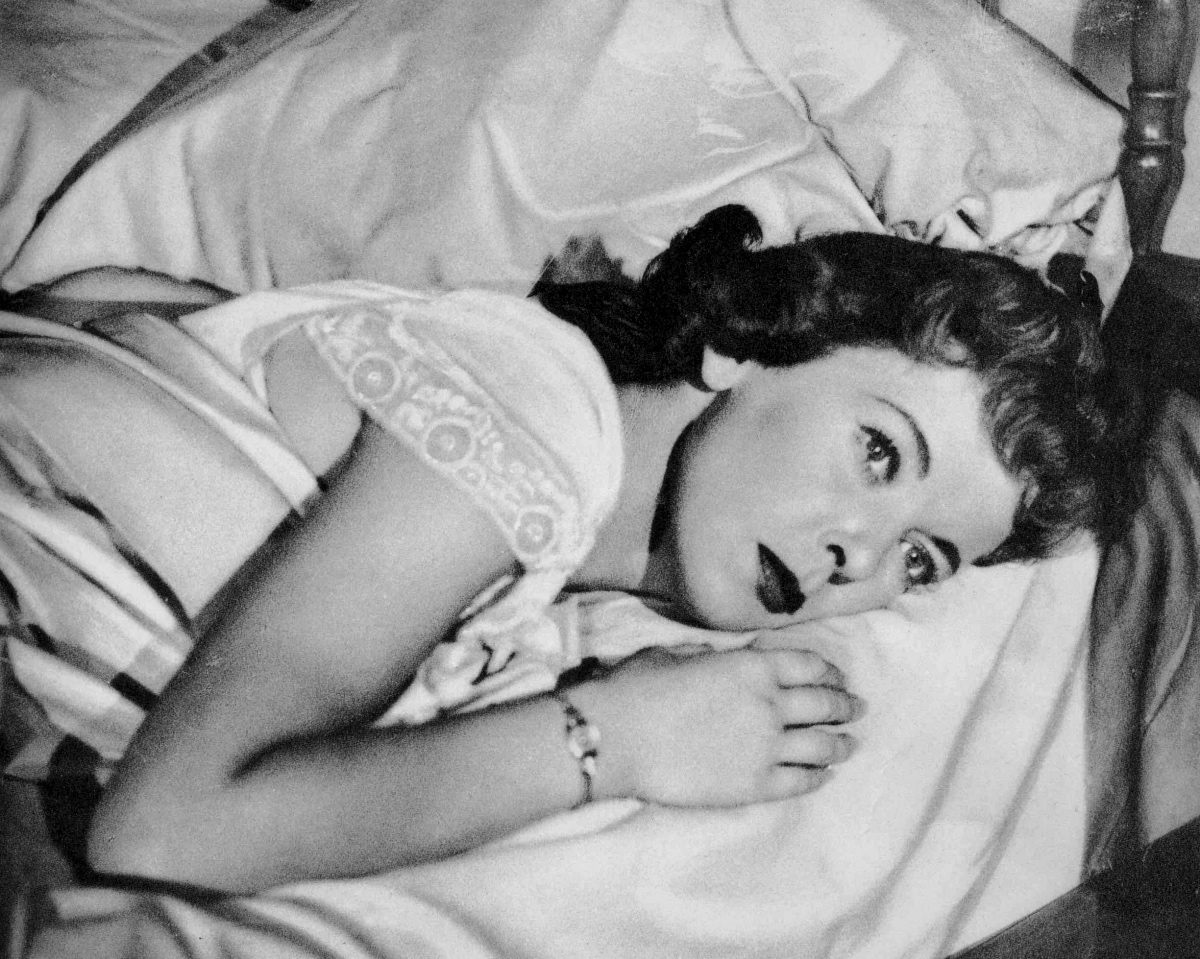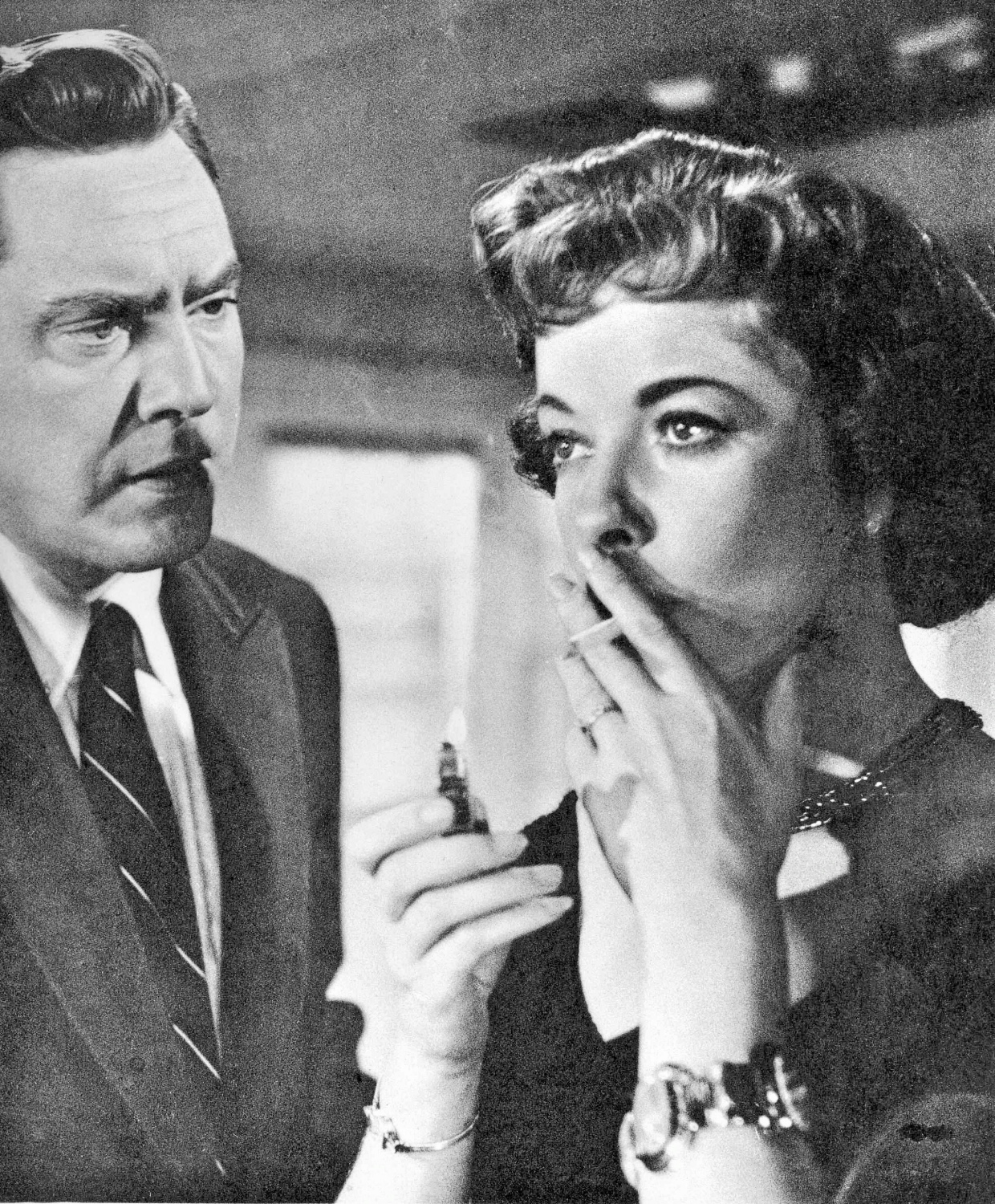
- Industry
Ida Lupino Film Restored With HFPA Grant Leads Centennial Celebration
The Bigamist (1953), a film noir restored with funding provided by the Hollywood Foreign Press Association, anchors a celebration of the 100 years anniversary of legendary actress and director Ida Lupino (1918-1995): Hard, Fast and Beautiful : The Films of Ida Lupino, which showcases six of her films, shown at the Billy Wilder Theater.
They are all typical Lupino, tackling and exposing the dark underside of American society in the midpoint of the 20th century. Controversial and even taboo topics such as adultery, bigamy, rape, psychopathic murderer, unwed motherhood, exploitative sports were front and center in her films. Lupino responded to the zeitgeist.
When Hollywood was dominated by men and restricted by the Hays Code, no other actress came close to the career of the fiery, petite (5′-2′) British born, who successfully bucked the system and created unique films, often starring, directing, writing and producing them. A review of her biography, Ida Lupino, Director said that she …’ fused generic elements of film noir and the social problem film to create a distinctive directorial style that was both highly expressionistic and grittily realistic. (The book) thus shines a long-awaited spotlight on one of our greatest filmmakers.

Ida Lupino and Edmond O’Brien in a scene from The Bigamist.
shooting star international
Lupino was never nominated for a Golden Globe, but two of The Bigamist’s cast were double Globe winners: Edmund O’Brien, who played the title role in The Bigamist, won his Globes for Best Supporting Actor-Motion Picture forThe Barefoot Contessa (1955) and Seven Days in May (1965). Edmund Gwen, who played an investigative head of an adoption agency, won his Globes in the same category for Miracle on 34th Street (1948) and Mister 880 (1951).
Lupino was born into a theatrical family, going back 200 years. At 13 she enrolled in the Royal Academy of Dramatic Arts. At 15 she got her first screen role. After her fifth film she was discovered and brought to Paramount Pictures in 1933, Lupino acted in dozens of films, was mainly cast as a headstrong, urbane character by major Hollywood directors, like Raoul Walsh, Michael Curtiz, Jean Negulesco and Nicholas Ray. But Lupino, young, brash, and ambitious always looked beyond acting. She considered the movie set her university, observing on set activities and cutting room creativity, learning all aspects of the filmmaking craft.
Lupino was the first actress to direct herself in a picture. She called directing the most demanding work in film, especially in male-dominated Hollywood. She did not shy from firmly but tactfully instructing a usually all-male, often skeptical crew. Excelling at what was then a strictly a man’s calling, (Dorothy Arzner was the only female director before Lupino) she was always feminine in bearing and manner, observing, ‘I’m not the kind of woman who can bark orders.’
With producer Collier Young, Lupino founded her own independent production company, The Filmmakers. That gave her the freedom to tackle controversial projects and do it in a no-nonsense, naturalistic, hard-nosed documentarian style uncommon for the time.
The Bigamist is a good example of the Hard, Fast and Beautiful: The Films of Ida Lupino series of screenings. Lupino’s role is one of the bigamist’s two wives, and the other is portrayed by Joan Fontaine. In a made-in-Hollywood twist, Fontaine was married at the time to Collier Young, Lupino’s ex-husband and her Filmmakers partner and the movie’s co-producer. They produced The Bigamist for RKO Pictures, but when the studio pulled out, Lupino had to become also the film distributor.
The reviews were not kind. Bosley Crowther of The New York Times called it ‘ just an average melodrama’. But years later critics discovered and embraced it. It was included in the compilation book 1001 Movies You Must See Before You Die. Film critic and author Chris Fujiwara calls it a ‘haunting film…, shattering, … one of several out-of-nowhere masterpieces’ directed by Lupino.
As The Bigamist lapsed into public domain, several inferior versions were made and marketed. It took a grant from the HFPA to enable the UCLA Archive to restore Lupino’s work for us to enjoy in the way it was meant to be seen.
Happy 100th celebration, Ida Lupino, Hollywood pioneer, outstanding talent.

